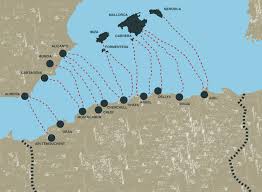
Europe’s migration landscape is undergoing profound shifts, with Spain’s Mediterranean coast witnessing a striking reversal in traditional migration flows.
According to a survey published by Frontex and reported by El Confidencial on 25 September 2025, Algerian migrants now dominate arrivals to Spain.
Between January and July, 4,099 Algerians reached the Spanish coast compared with just 593 Moroccans.
The trend intensified last week when 5,503 migrants arrived on 296 boats, the majority departing from Algeria. This marks a historic change, altering long-established maritime routes and relegating Morocco behind its neighbour.
The influx has had immediate consequences for border control and reception systems, especially in the Balearic Islands, which have emerged as one of the main gateways. Authorities and humanitarian groups are being forced to adapt rapidly to shifting routes and increasing numbers.
This transformation reflects more than statistics. Each arrival tells the story of broader social, political, and economic pressures across North Africa. Spain’s coastal regions are now at the frontline of Europe’s migration challenges, balancing security needs with humanitarian obligations.
The disparity between Algerian and Moroccan flows suggests a silent rivalry for access to Spain. While Morocco’s numbers fall, Algeria has unexpectedly become the leading departure point, reshaping both local and international responses.
The change could also influence diplomatic dynamics between Madrid, Algiers, and Rabat, with migration cooperation expected to be a central issue in discussions. For now, the Balearic Islands remain a critical observatory of these developments, where each new boat arrival alters the calculations of authorities, aid organisations, and policymakers.
As the Western Mediterranean continues to transform, Europe faces the urgent task of managing migration with precision, ensuring that responses remain both effective and humane.



